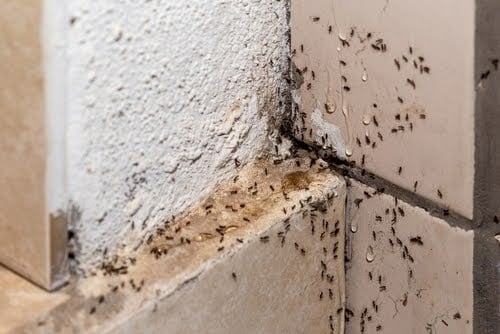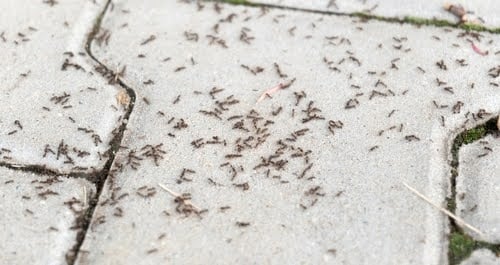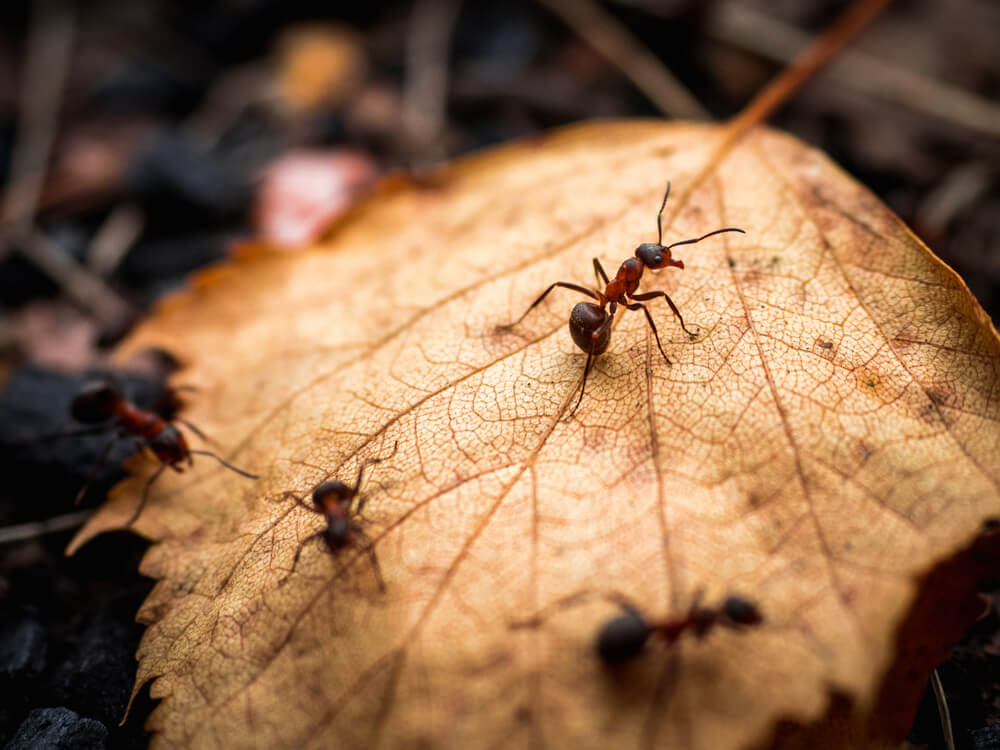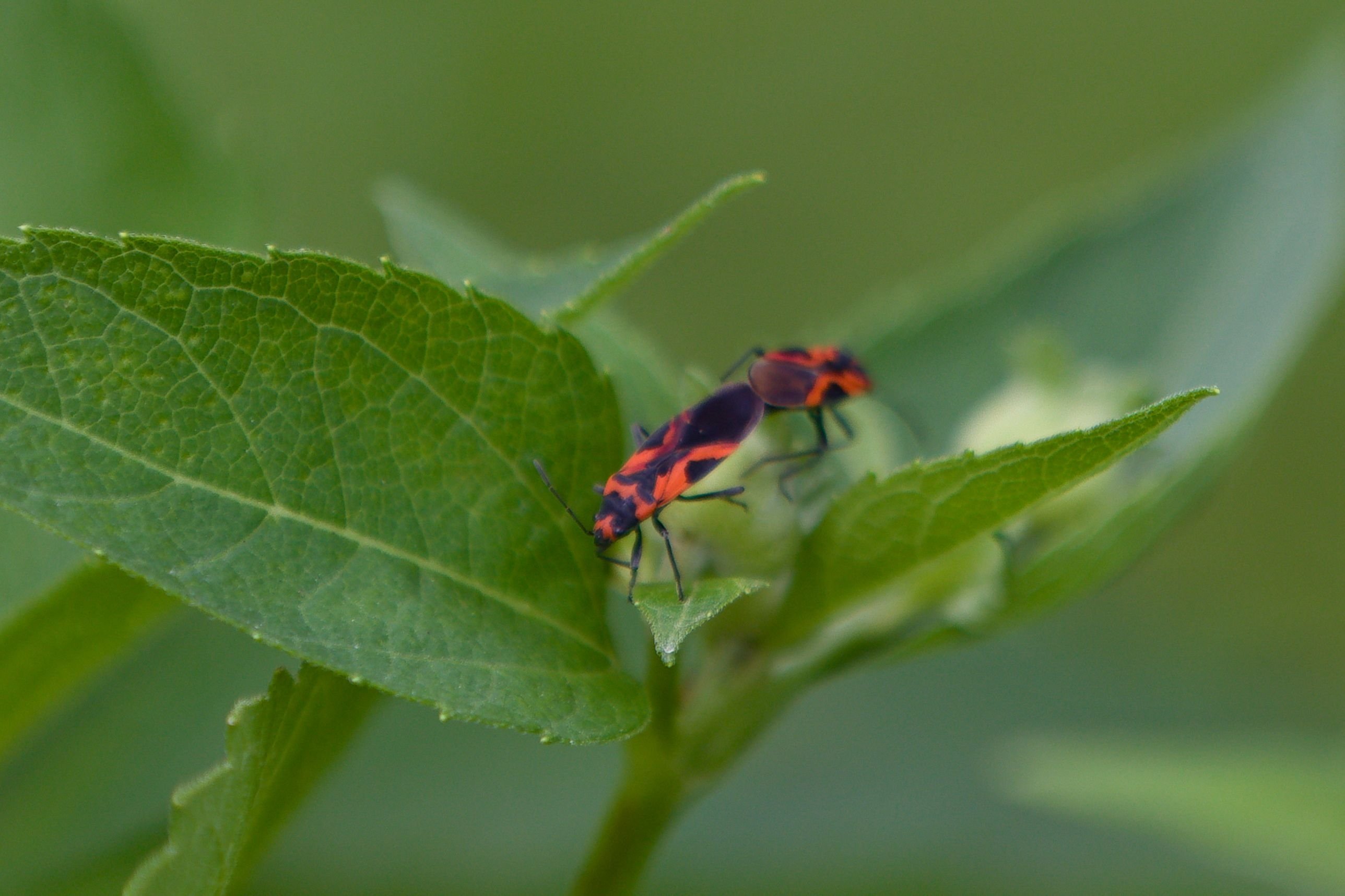Ants are busy this time of year because if colonies want to survive the winter, they have to get creative. Ants start their winter prep early by stockpiling large quantities of food to last them until the snow melts.
Every ant colony’s dream is to find a reliable, replenishing source of food. Unfortunately, your home could be the food paradise these pests are looking for. Ants will stop at nothing to try to get at your food this fall.
What Causes an Ant Infestation?
As the weather cools, ants begin to seek warmth and shelter. Here’s how you might be attracting ants to your home:
- Crumbs and Food Scraps: Ants are drawn to food sources, especially sugary and greasy items. Crumbs left on countertops, in pantry shelves, or on the floor are like an open invitation to ants. Even small crumbs can attract large numbers of ants, leading them straight to your kitchen or dining areas.
- Unclean Surfaces: A lack of regular cleaning can easily lead to an ant infestation. Spills that aren’t wiped up, sticky surfaces, or improperly stored food provide ants with the nourishment they need. Ants will follow scent trails left behind by other ants to find food and shelter, often entering through small cracks or gaps.
- Trash and Compost: Unsealed trash cans or food scraps in compost bins are common attractants for ants. If you leave trash exposed or your bins aren’t tightly sealed, ants will quickly find their way to them. Even if the food is in a garbage bag, ants can find their way through small openings to get to it.
- Moisture: Ants also need water to survive. If there are leaks in your kitchen, bathroom, or basement, ants may be attracted to areas with standing water or moist conditions. These wet spots provide both hydration and an ideal environment for ants to establish a nest.
- Open Entry Points: Ants can easily enter your home through tiny cracks and gaps around windows, doors, or walls. Once they find their way inside, they will create trails, leading more ants to follow the path straight to food sources. Even the smallest openings can become gateways for an infestation.
- Overhanging Vegetation. Ants commonly enter homes by following trees and bushes into a building.

How to Keep Ants Out of Your House this Fall
Follow these tips to keep ants from moving in this fall:
1. Store Your Food Properly
Ants break off small chunks from food they can access and carry it back to their nearby colonies. If there’s enough food with a convenient access point, ants may even establish “satellite colonies” in order to access food faster.
Unfortunately, food containers made of paper, cardboard, or plastic bags don’t keep ants out. Put cereals, pastas, grains, flours, and other at-risk foods into hard plastic or glass storage containers. Refrigerate fruit, vegetables, and loaves of bread.

2. Seal Entry Points
Drafts and openings in your walls and foundations suck hot air out of your home. Ants (and other pests) feel the hot air as it passes outdoors and follow it into your home. Look in your basement, around windows, places where utility lines enter the home, and along the floor (especially in corners). Seal off openings with steel wool or caulk.
3. Clean Up Your Yard
With leaves blowing around, twigs and branches falling off trees, and mud, fall can make your yard quite messy. It’s tempting to give up on groundskeeping and wait for the snow to cover it up. However, all kinds of pests love this time of year because lawn clutter gives them the perfect cover to sneak close to your home.
Luckily, fall yard maintenance isn’t too complicated. Rake up leaves, trim your bushes, pick up fallen twigs and branches, and cut your grass. If you keep firewood outside, cover and elevate it.

4. Keep Your Home Tidy
To prevent ants, make sure to wipe down counters, tables, and other surfaces after each meal to remove food particles and spills. Do dishes immediately instead of leaving them in the sink, as leftover food can attract ants. Vacuum at least once a week, especially in the kitchen and dining room, to pick up any crumbs or food debris that may have been missed. These simple habits can go a long way in keeping ants out of your home.









